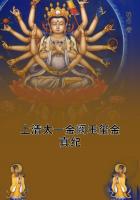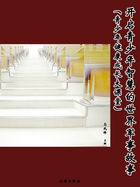The ecclesiastical authorities were extremely moderate in their demands. They insisted on no religious knowledge, and merely demanded that the converts should be baptised. The converts, failing to understand the spiritual significance of the ceremony, commonly offered no resistance, so long as the immersion was performed in summer. So little repugnance, indeed, did they feel, that on some occasions, when a small reward was given to those who consented, some of the new converts wished the ceremony to be repeated several times. The chief objection to receiving the Christian faith lay in the long and severe fasts imposed by the Greek Orthodox Church; but this difficulty was overcome by assuming that they need not be strictly observed. At first, in some districts, it was popularly believed that the Icons informed the Russian priests against those who did not fast as the Church prescribed; but experience gradually exploded this theory. Some of the more prudent converts, however, to prevent all possible tale-
telling, took the precaution of turning the face of the Icon to the wall when prohibited meats were about to be eaten!
This gradual conversion of the Finnish tribes, effected without any intellectual revolution in the minds of the converts, had very important temporal consequences. Community of faith led to intermarriage, and intermarriage led rapidly to the blending of the two races.
If we compare a Finnish village in any stage of Russification with a Tartar village, of which the inhabitants are Mahometans, we cannot fail to be struck by the contrast. In the latter, though there may be many Russians, there is no blending of the two races.
Between them religion has raised an impassable barrier. There are many villages in the eastern and north-eastern provinces of European Russia which have been for generations half Tartar and half Russian, and the amalgamation of the two nationalities has not yet begun. Near the one end stands the Christian church, and near the other stands the little metchet, or Mahometan house of prayer.
The whole village forms one Commune, with one Village Assembly and one Village Elder; but, socially, it is composed of two distinct communities, each possessing its peculiar customs and peculiar mode of life. The Tartar may learn Russian, but he does not on that account become Russianised.
It must not, however, be supposed that the two races are imbued with fanatical hatred towards each other. On the contrary, they live in perfect good-fellowship, elect as Village Elder sometimes a Russian and sometimes a Tartar, and discuss the Communal affairs in the Village Assembly without reference to religious matters. I
know one village where the good-fellowship went even a step farther: the Christians determined to repair their church, and the Mahometans helped them to transport wood for the purpose! All this tends to show that under a tolerably good Government, which does not favour one race at the expense of the other, Mahometan Tartars and Christian Slavs can live peaceably together.
The absence of fanaticism and of that proselytising zeal which is one of the most prolific sources of religious hatred, is to be explained by the peculiar religious conceptions of these peasants.
In their minds religion and nationality are so closely allied as to be almost identical. The Russian is, as it were, by nature a Christian, and the Tartar a Mahometan; and it never occurs to any one in these villages to disturb the appointed order of nature. On this subject I had once an interesting conversation with a Russian peasant who had been for some time living among Tartars. In reply to my question as to what kind of people the Tartars were, he replied laconically, "Nitchevo"--that is to say, "nothing in particular"; and on being pressed for a more definite expression of opinion, he admitted that they were very good people indeed.
"And what kind of faith have they?" I continued.
"A good enough faith," was the prompt reply.
"Is it better than the faith of the Molokanye?" The Molokanye are Russian sectarians--closely resembling Scotch Presbyterians--of whom I shall have more to say in the sequel.
"Of course it is better than the Molokan faith."
"Indeed!" I exclaimed, endeavouring to conceal my astonishment at this strange judgment. "Are the Molokanye, then, very bad people?"
"Not at all. The Molokanye are good and honest."
"Why, then, do you think their faith is so much worse than that of the Mahometans?"
"How shall I tell you?" The peasant here paused as if to collect his thoughts, and then proceeded slowly, "The Tartars, you see, received their faith from God as they received the colour of their skins, but the Molokanye are Russians who have invented a faith out of their own heads!"
This singular answer scarcely requires a commentary. As it would be absurd to try to make Tartars change the colour of their skins, so it would be absurd to try to make them change their religion.
Besides this, such an attempt would be an unjustifiable interference with the designs of Providence, for, in the peasant's opinion, God gave Mahometanism to the Tartars just as he gave the Orthodox faith to the Russians.
The ecclesiastical authorities do not formally adopt this strange theory, but they generally act in accordance with it. There is little official propaganda among the Mahometan subjects of the Tsar, and it is well that it is so, for an energetic propaganda would lead merely to the stirring up of any latent hostility which may exist deep down in the nature of the two races, and it would not make any real converts. The Tartars cannot unconsciously imbibe Christianity as the Finns have done. Their religion is not a rude, simple paganism without theology in the scholastic sense of the term, but a monotheism as exclusive as Christianity itself.















